SON's school-based clinics expand behavioral health care
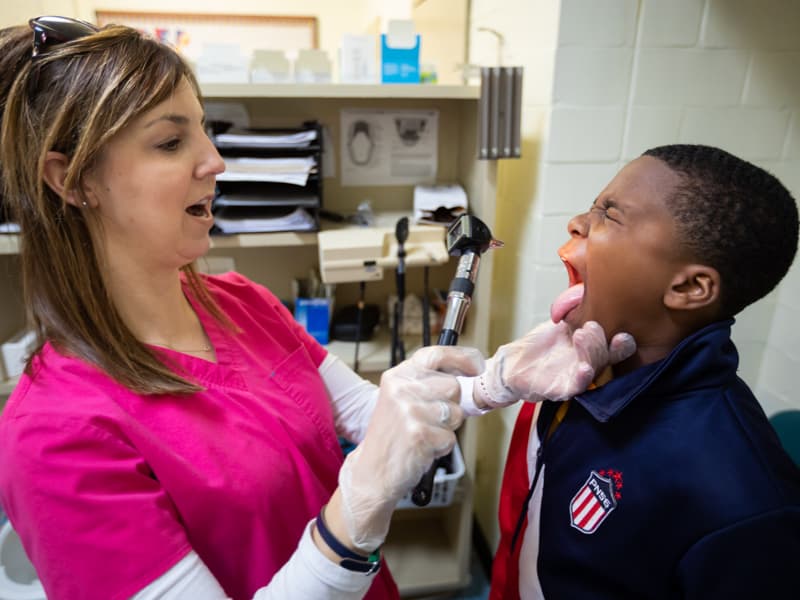
No day at the Lanier High Teen Wellness Clinic looks the same for the nurse practitioners and staff who work there.
Some students are regular visitors to the clinic. They come in to speak to a nurse, get food out of the food pantry, or pick up some deodorant and soap. When they’re sick or in need of a check-up, they visit the clinic right there in the school, which allows them to return to class and reduces absenteeism.
The clinic at Lanier provides critical services to young people who face major challenges to health care access. The same goes for the seven other school-based clinics in Jackson Public Schools and the South Delta School District run by the School of Nursing at the University of Mississippi Medical Center.
At Lanier, the family nurse practitioner and other staff provide the high schoolers well-child checkups, sports physicals, health education and also see them for acute or episodic visits.
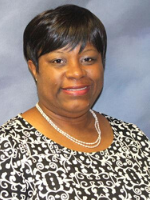
Dr. Valerie Bradley, principal at Lanier High school, says she couldn’t imagine not having the clinic.
“Our children come to school with a lot of physical and mental challenges, and all of those things threaten their well-being as well as their educational performance,” said Bradley.
Hunger, mental health challenges, and a lack of access to health care – whether because of transportation or financial challenges – can all be major barriers to learning.
“One definite benefit is I can send them right down the hall as opposed to somebody coming to check them out, and they may or may not come back that day,” said Bradley. “It keeps them in school, and we can make sure their mental and physical well-being is in check.”
But last fall, the finances of the school-based clinics were on shaky ground, and the survival of the clinics was in danger.
On top of that, the folks at Lanier and several other schools saw a real need for increased behavioral health services beyond what was provided at the time.
Enter Dr. Kayla Carr, an assistant professor of nursing at the School of Nursing who has a longtime relationship with the school-based clinics. Carr’s undergraduate research helped established the Mercy Delta Express clinics at Ripley Blackwell Head Start Center in Mayersville, South Delta Elementary School in Rolling Fork, South Delta Middle School in Anguilla and South Delta High School in Rolling Fork.
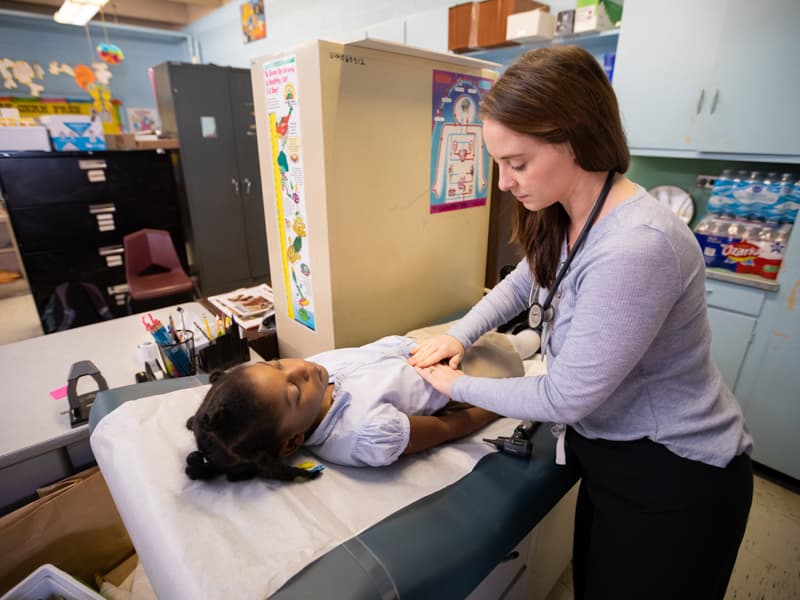
She continued to work as a school nurse, then as a nurse practitioner, in the clinics. As a doctoral student, she did her dissertation on primary care and behavioral health integration, including exploring ways school nurses can improve behavioral health care.
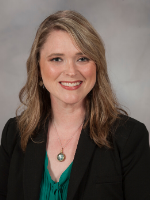
In December, she saw a grant opportunity and jumped on it. Her initiative resulted in the awarding of a three-year, $1.5 million Health Resources and Services Administration grant.
“This funding will keep the clinics viable for at least another three years and give us time to re-think some of our structures and strategies to stay more sustainable, so it’s a great thing,” said Carr.
Dr. Julie Sanford, dean of the School of Nursing, said she and the entire school are thankful to HRSA and to those who donate to the clinics.
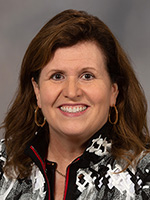
“These nurse-managed clinics are impacting students and faculty at the schools and leading to outstanding health outcomes,” she said. “We are so grateful to those who believe in the importance of these clinics.”
The funds will allow the clinic to hire a full-time psychiatric nurse practitioner to work alongside the family nurse practitioner at Lanier and the other school-based health clinics when necessary. The new nurse practitioner will provide services such as screening, medication management and counseling in person and via telehealth.
He or she will also implement a coping skills program for 5th and 8th graders. The program will teach students how to manage their stress and mood, positive communication strategies and when and how to seek professional help.
The grant is also allowing the providers to use the digital mental health platform Silvercloud – a tool that could be crucial during the COVID-19 pandemic and the uncertainty about what school will look like the next academic year.
After the school abruptly shut down in March, students lost access to many of the resources the clinic offered.
“We anticipate that all those problems we left in March are only going to be magnified by the pandemic,” said Carr.
Carr said the Silvercloud app and other telehealth services made possible by the grant are going to be “an important bridge” until students and staff return to Lanier.
Students can do daily check-ins and communicate with school clinic staff through the app, which also offers interactive strategies for improving their mood.

Dr. Anne Norwood, clinical director for the Jackson school-based clinics and associate dean for practice and partnerships for the School of Nursing, said she is thankful for Carr’s initiative in applying for and getting the grant.
“The beauty of these clinics is they support the mission of UMMC through education, research and practice,” said Norwood. “We have students from different disciplines who gain valuable urban and rural clinical experiences in medically underserved areas of our state through these clinics. We’re not only a source of health care but also a source of interprofessional education” for students in nursing, medicine, social work and more.
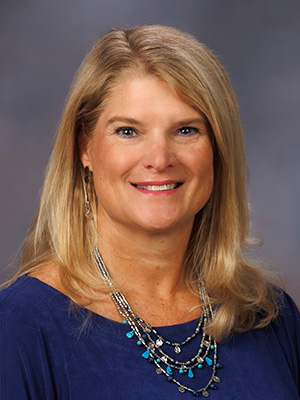
Dr. Lisa Haynie, director of the Delta clinics, said she is ecstatic her district’s four clinics will continue to operate thanks to a large anonymous donation coupled with community donations and support from the Mississippi Department of Education, which also helps fund the Jackson school-based clinics.
“We’re excited about the upcoming school year and that we’re able to continue providing these services to the children that we love and adore,” said Haynie.
The care that Carr, Haynie, Norwood and all of the staff members of the school clinics doesn’t go unnoticed by administrators, teachers and parents.
Bradley, who’s been in K-12 education for more than 10 years, said she has a firm belief: truly helping someone requires caring for him or her.
The staff at the clinic always cares and helps.
“The clinic presents that kind of atmosphere,” she said. “Not only will they reach out to the children, but to their families.”


